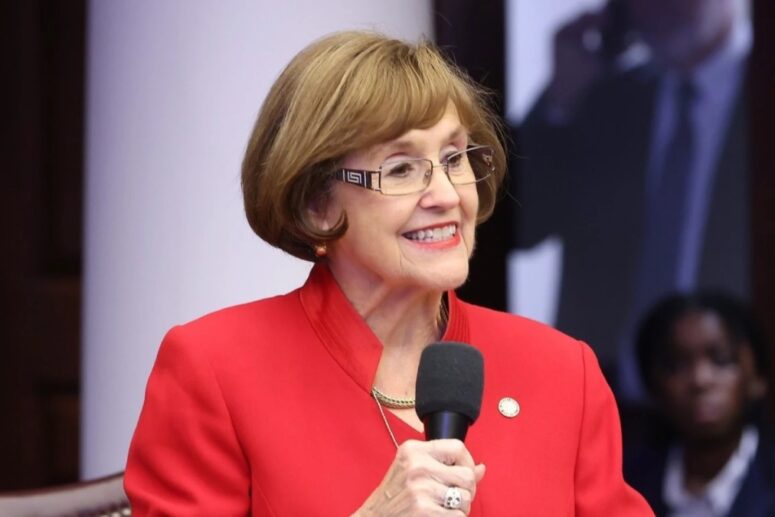
A bill aimed at improving the lives of children with autism has gained strong support from Florida’s Senate President and is receiving appreciation from families who want the best for their children. Advocates believe this legislation could make a significant impact on early intervention and educational opportunities. For many parents, this measure is more than just policy—it’s personal.
One mom, Debra Ervin, reflects on how a bill like this could have made a difference for her son. Like many parents, she noticed early signs but struggled to navigate the system and find the right support.
From the time he was just a toddler, Ervin knew there was something different about her son.
“When he could read at the age of 2 and read all of the continents and countries on a map, I knew something was going on, but I didn’t know what,” she says.
Ervin’s son, who is now an adult, is on the autism spectrum. She describes him as “a very, very bright young man with a great heart.” However, when he was a child, getting a diagnosis was a challenge. Without one, her family was left with more questions than answers, making it difficult to find appropriate resources and support.
“He came home one day very, very sad, that his teacher had told him that he would never get into the private school that we were applying for,” she recalls. “And as it turned out, not only did he get into the private school, but he became the valedictorian in his senior year.”
While Ervin’s son excelled academically, not all children on the spectrum have access to the resources they need to thrive. That’s where Florida lawmakers hope to step in.
Stuart Republican Sen. Gayle Harrell is sponsoring Senate Bill 112 (SB 112)—a measure that has become a priority for Senate President Ben Albritton. The bill places a strong emphasis on early detection and intervention, which experts say is essential for improving long-term outcomes.
“Before, we didn’t really have a mechanism for diagnosis,” Harrell says. “I think early diagnosis is absolutely key. If you can get kids with autism into programs that help them develop their skills and help them deal with the problems they have, I think you’re much, much better off.”
Advocates agree that being able to detect autism in kids at an early stage can be life-changing. Research shows that the earlier children receive support, the more they can develop essential communication, social, and behavioral skills. Delayed diagnosis, on the other hand, can leave families struggling to find appropriate services when they need them the most.
Harrell highlights that today’s experts are identifying individuals on the spectrum who might have gone undiagnosed in the past.
“And the spectrum is so wide,” she says, “that we really need to understand that it can be someone who is very, very handicapped … very, very unable to communicate … then all the way up to individuals (with) Asperger’s syndrome that are absolutely brilliant. They may not communicate and connect, but they are absolutely brilliant.”
The bill would also designate the University of Florida’s Center for Autism and Neurodevelopment as the state’s central hub for research, services, and best practices. This move is expected to improve access to critical resources and provide families with better guidance.
One of the biggest concerns families face is the transition between early childhood programs and the school system. Right now, children with autism remain in the Early Steps program until they turn 3, but then they experience a gap in services before entering school.
Harrell’s bill aims to bridge this gap by allowing children to stay in Early Steps until they’re 4, giving them an extra year of structured learning and support.
“This is going to end that gap,” she says. “Also, summer school is important. Making sure you have those camps that are specific to kids with autism. They can’t go, many times, to a regular camp. And this is a full summer of nothing for them. And this is going to give them a place to really continue the learning process. So, those are two major, major parts of it.”
By ensuring a smoother transition from early intervention programs to school, lawmakers hope to set children up for long-term success.
For parents like Ervin, filling these gaps could have made an enormous difference for her son. While she is grateful for this proposal, she believes there is still more work to be done. She hopes that future legislation will focus on increasing employment opportunities for individuals with autism.
“We need jobs for people that are disabled,” she says. “And we need recruitment for people that are disabled. That would make such a difference in their lives.”
Harrell and Albritton have long histories of supporting legislation that benefits children, and this bill is another step toward ensuring that all kids—regardless of where they fall on the spectrum—receive the opportunities they deserve. By strengthening early intervention programs and making it easier to detect autism in kids, Florida lawmakers are taking a critical step toward a more inclusive future.
Unlock Your Child’s Potential with Expert ABA Therapy
At Behavioral Intervention for Autism, we are dedicated to empowering children with autism through evidence-based ABA therapy in Florida. Our compassionate team designs personalized treatment plans to enhance communication, social skills, and independence. We believe in a collaborative approach, working closely with families to ensure lasting progress. With our tailored support, every child can thrive in their unique way. If you’re looking for professional, effective autism services, we’re here to help. Take the first step toward meaningful growth—contact us today to learn how our expert ABA therapy in Florida can make a difference!
- 9 Common Obsessions of Children With Autism You Should Know - February 25, 2025
- What is Neurodiversity? A Guide to Embracing Differences - February 25, 2025
- Understanding Hyperfocus in Autism: What It Means and Why It Happens - February 25, 2025
